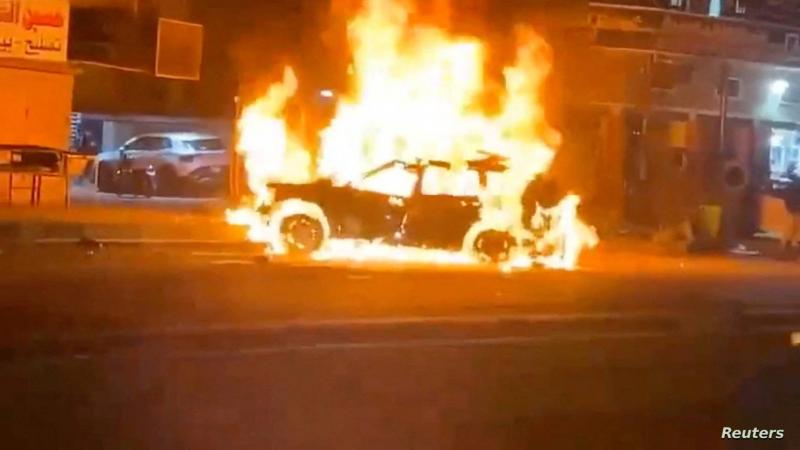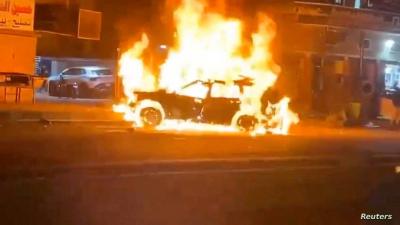A report by the Associated Press highlights the relationship between the Iraqi government and Iranian-backed militias that have been launching attacks on U.S. forces for several weeks. The report states that the recent U.S. strike, which killed a prominent leader of the Kata'ib Hezbollah militia in Baghdad, has drawn attention to the "problematic status" of the armed factions allied with Iran in the country, some of which operate under the umbrella of official security forces while simultaneously being outside state control.
The report, translated by Al-Hurra, indicates that this situation has placed the government of Prime Minister Mohammed Shia al-Sudani in a delicate position, as it tries to balance its relations with the United States and with Iraqi armed groups that sometimes engage in direct conflict with U.S. forces. Among these groups is Kata'ib Hezbollah, described in the report as one of the strongest armed groups in Iraq and also part of the Popular Mobilization Forces (PMF).
However, the report notes that Kata'ib Hezbollah and some other groups within the PMF have launched repeated attacks on U.S. forces in Iraq. The United States has designated Kata'ib Hezbollah as a terrorist organization, and in 2020, a U.S. airstrike killed the militia's founder, Abu Mahdi al-Muhandis, along with former Iranian Quds Force commander General Qasem Soleimani.
Last Wednesday, a U.S. strike resulted in the death of Wisam Muhammad Saber al-Saadi, known as Abu Baqir al-Saadi, who was responsible for Kata'ib Hezbollah operations in Syria. The U.S. stated he was responsible for "directly planning and participating in attacks" against U.S. forces.
In 2016, the Iraqi government classified the PMF as an "independent military formation" within the Iraqi armed forces. However, some of the groups that form the PMF are also part of what is known as the "Islamic Resistance in Iraq," which includes armed factions loyal to Iran that have carried out about 170 strikes against bases housing U.S. forces in Iraq and Syria over the past four months.
Specialist researcher on Iraqi affairs at the International Crisis Group, Leila Haigh, notes that some armed groups within the PMF play a dual role. She points out that they have a daily function as part of the PMF and another role of conducting resistance operations against the U.S. presence.
What will happen in the future? Mansour states that while tensions escalate, "no party actually wants a full confrontation or direct war in Iraq." He sees that instead, the U.S. and Iraq are likely to continue working towards the withdrawal of coalition forces and moving towards establishing bilateral relations between the two countries. Haigh believes that Iranian-backed factions are likely to pressure the Iraqi government to set a rapid timeline for the gradual ending of the coalition forces' presence. She adds, "The U.S. will not leave under the threat of a gun pointed at its head, so to speak, thus making it nearly impossible." She continues, "You need to de-escalate to have those discussions and actually reach some outcomes."




